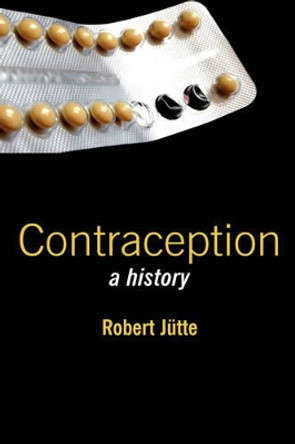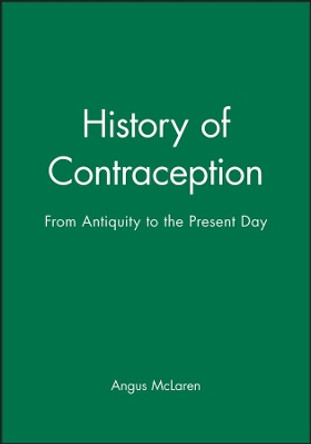Description
In this engaging new book Robert Jutte offers a history of contraception from the Ancient world to the present day. He distinguishes two broad phases: first, a long phase, extending from the Ancient world up to the 18th century, in which birth control was part of a traditional form of sexual knowledge what Jutte calls, following the French social philosopher Michel Foucault, the ars erotica. In the second phase, which began in the 19th century, practices of birth control are increasingly shaped by the emerging models of scientific knowledge, while still retaining some vestiges of the erotic arts.
In addition to the contraceptives we know and use today, from coitus interruptus to the condom and the pill, Jutte considers other methods of birth control as diverse as the use of herbal potions and vaginal pessaries, the castration of young boys and the enforced sterilization of men and women. This comprehensive history of one of the oldest and most widespread of human practices offers a rich and nuanced account of how men and women across the centuries have struggled with the needs both for sexual gratification and for limitation of offspring, while also looking beyond the present to catch a glimpse of how contraception might evolve in the future.
About the Author
Robert Jutte is Head of the Institute of Medicine at the Robert Bosch Foundation and Professor of Modern History at Stuttgart University.
Translated by Vicky Russell.
Reviews
"What sets Jutte's work apart and makes this volume essential reading on the topic is its fine historiography and analysis of foregoing authors' projects."
The Lancet
"Should prove useful to students and scholars alike."
Times Higher Education
"A fascinating, detailed and well-researched insight into the social, cultural and religious influences that have influenced knowledge, attitudes, acceptance and use of fertility control throughout history."
Family Planning Association newsletter
"A carefully researched survey that will provide useful material for those interested in comparing ideas about contraception in diff erent places and times."
English Historical Review
"Robert Jutte's extraordinary history of contraception enables us to look in an entirely new way at the claim of the 1960s generation that theirs was the first sexual revolution. The struggle for the control of sexual reproduction from the ancient world through the Middle Ages is as important to Jutte's story as are the rise of sexual science in the nineteenth century and the introduction of the pill in the twentieth. Indeed how 'modern' means exist side by side with 'traditional' means of birth control (some more efficient than others - but which?) haunts this entire history. A readable and fascinating account of woman's age-old struggle."
Sander Gilman, Emory University
"The publication of an English version of Robert Jutte's Lust ohne Last is greatly to be applauded. This extremely thoughtful and engagingly written study substantially exceeds earlier attempts to set down histories of contraception. Jutte has produced a chronologically wide-ranging cultural history and adopts a Foucauldian framework in which the issues of power and knowledge loom large throughout. As a result it is a work of great interest to social and cultural historians, demographers, historically minded social scientists, and historians of ideas, medicine and science."
Richard Smith, University of Cambridge
Book Information
ISBN 9780745632711
Author Robert Jutte
Format Paperback
Page Count 288
Imprint Polity Press
Publisher John Wiley and Sons Ltd
Weight(grams) 408g
Dimensions(mm) 231mm * 155mm * 22mm








